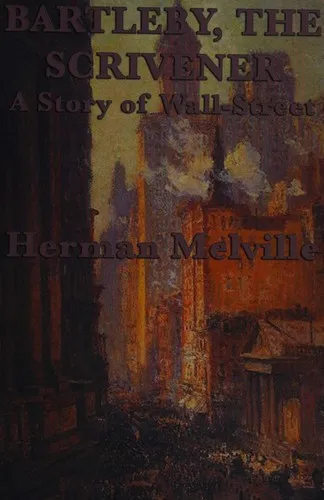Bartleby, The Scrivener A Story of Wall-Street
(Author) Herman MelvilleBartleby is a kind of clerk, a copyist, "who obstinately refuses to go on doing the sort of writing demanded of him." During the spring of 1851, Melville felt similarly about his work on Moby Dick. Thus, Bartleby can be seen to represent Melville's frustration with his own situation as a writer, and the story itself is "about a writer who forsakes conventional modes because of an irresistible preoccupation with the most baffling philosophical questions." Bartleby can also be seen to represent Melville's relation to his commercial, democratic society.
Herman Melville
Herman Melville (1819-1891) was an American novelist, poet, and short story writer best known for his novel "Moby-Dick," a complex and symbolic work that explores themes of obsession, fate, and the struggle between good and evil. Melville's writing style is characterized by its rich symbolism, philosophical depth, and exploration of existential themes. His other notable works include "Typee," "Billy Budd," and "Bartleby, the Scrivener." Melville's contributions to literature have had a lasting impact on the development of American literature, particularly in the genre of the novel.





